Dominique Fishback Is Winning the Virtual Press Game With Her Eye-Catching Looks
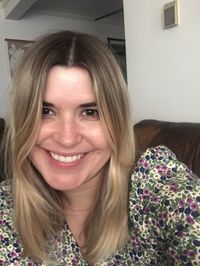

Dominique Fishback loves a good vision board. Career, self, fashion, you name it, and she has a PDF for it. The power of manifestation—putting her goals and dreams out into the universe—has served the actress well in her almost 30 years. Take, for instance, a tweet she published back in February 2011 at the onset of her career in which she declared, "I want to make theater that changes lives. I want to be a part of shows that are profound to people, shows that have beautiful messages and writing and music. I just want to touch hearts.” Fast-forward to 2021, Fishback is literally doing just that with heavy-hitting performances in Judas and the Black Messiah, Project Power, and The Deuce. Then, there are the mood boards she created for her first meeting with stylist Madison Guest a few years back in which she posed the questions, "What would it look like if Brooklyn had princesses, and what would it look like if Tupac and Selena had a baby?” Cue her 2021 "divine feminine” fashion revolution. In the 25 minutes I spend with Fishback, it became obvious I was in the presence of a true visionary and artist.
Of course, I already knew that going into the interview. The woman behind the one-woman show Subverted has held a firm spot on my radar since I first covered her breakout role on The Deuce two years ago. But Judas and the Black Messiah feels like a major turning point for the actress. The biographical film, written and directed by Shaka King, centers on the betrayal and tragic assassination of Fred Hampton (Daniel Kaluuya), chairman of the Illinois chapter of the Black Panther Party in the late ‘60s. The role of Deborah Johnson, Hampton’s fiancée, was always going to be Fishback’s—that’s how King wrote it—and it’s clear she poured every bit of herself into the part, even lending her writing skills for the emotional poem Deborah reads to Fred in the film. Fishback’s performance is raw and full of heart, the kind that sticks with you long after the credits roll. It left a lasting impression on Fishback, too, who told me about her experience: "I learned who I wanted to be as a woman and as a person moving forward. I’m forever changed and fortunate to know these people.”
It’s been a whirlwind two months for Fishback, who has done countless interviews and press appearances in support of Judas and the Black Messiah. In that time, we’ve been treated to over 15 standout fashion and beauty looks. If there was any question, yes, Fishback is winning the virtual press game right now. The proof is in the imagery below, provided exclusively to Who What Wear, which served as the perfect accompaniment to my eye-opening conversation with the actress.
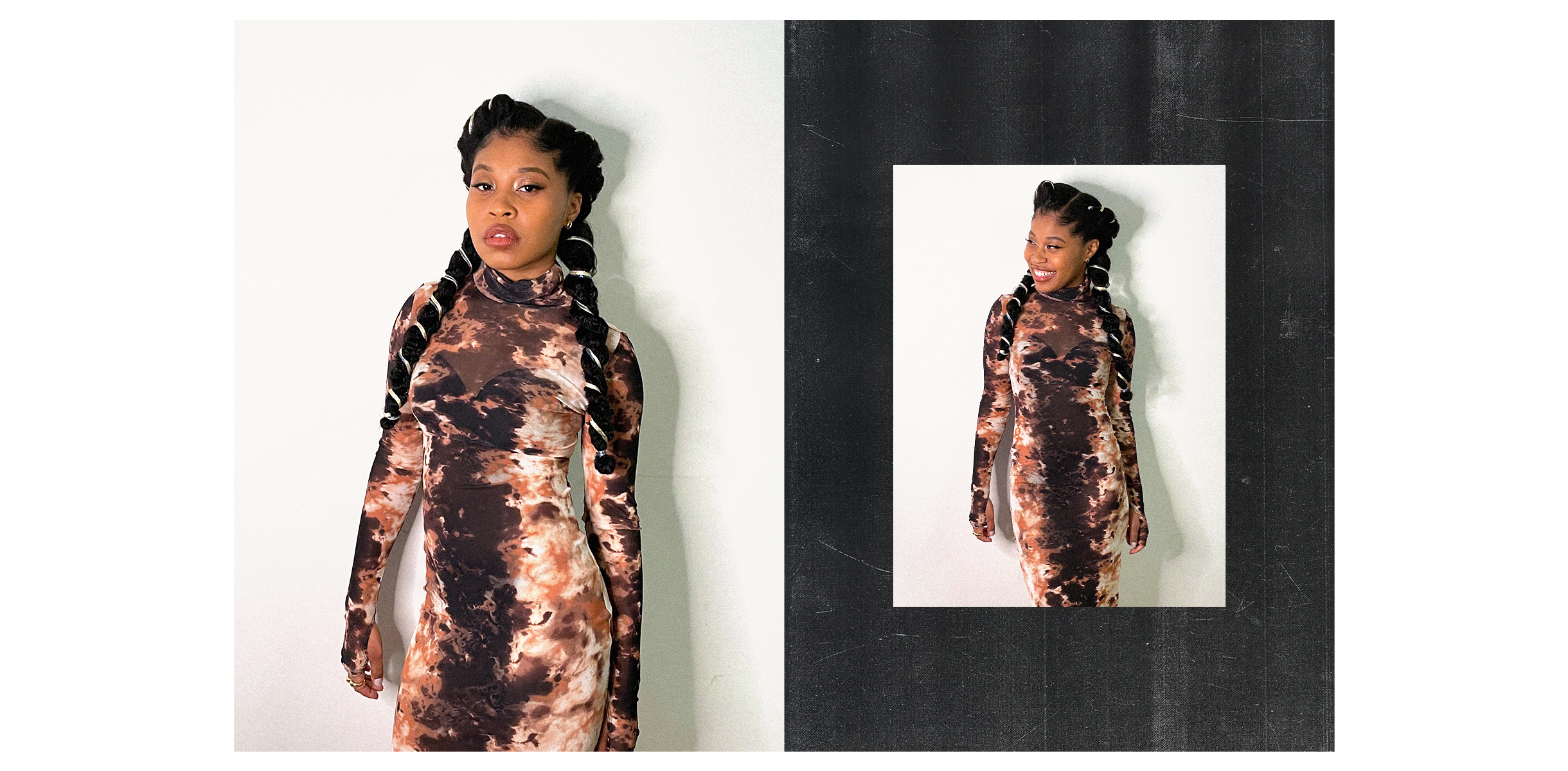
Reading a lot of the interviews you’ve done for Judas and the Black Messiah, it’s clear that this film has had a major, if not transformative, impact on you. Can you elaborate on your experience?
I think one of the proudest moments [for me] was before we started filming. I got to go to Chicago to meet the family. It was Daniel [Kaluuya] and I along with [director] Shaka King and Will [Berson], the co-writer, and we sat around the table for over seven hours. Chairman Fred Hampton Jr. asked us to all go around the table and say why we wanted to do this film. That was really amazing to me because it felt like they were really giving us a chance and really trying to get to see who we are. I think that also allowed me to trust the team more because we were all just getting to know each other. It was just so vulnerable and so exposing [sharing] why we wanted to do something like this, but we saw that everyone had a purpose that was bigger than just wanting to act or just wanting to create this story. So that was a proud moment. And then, Mama Akua [Njeri], formerly known as Deborah Johnson, coming to set and just telling me that she saw herself up there, that was a proud moment. Just honestly getting to portray a love like hers and to uplift the legacy of Chairman Fred [Hampton] through my own eyes, I’m helping to show how massive and amazing he is, he was. So I get to lend not just my body and my likeness, not just my voice, not just my eyes but also my own words in being able to write the poem that she shares with [Fred] in the movie. It was like I couldn’t have prayed for something better. I couldn’t have prayed for a better cast or collaborators. I learned who I wanted to be as a woman and as a person moving forward. I’m forever changed and fortunate to know these people.
What were some of the conversations you had with Njeri before or during filming?
You know, she didn’t really share much about their relationship. Chairman Fred Hampton Jr. says, "There are some things that have to go to the grave,” so they were really protective of personal stories. So in that sense, she really allowed me to develop her the way I intuitively wanted to, which was journaling and really navigating the emotional world of what it would be like to fall in love with a man who is such a revolutionary as he. One of the things that she said is she did not cry when they assassinated Chairman Fred, which was really important, so we wanted to honor that.
When doing research for the film, was there anything about the Black Panther Party or about Fred Hampton and Njeri’s relationship specifically that surprised you?
I read the Assasination of Fred Hampton before and, over the course of the year, talked to Shaka about different things that we were reading, and then in April of 2019, for whatever reason, I started listening to a lot of Malcolm X and Martin Luther King speeches on Tidal every morning. I didn’t know why I was doing it, but I remember feeling like, "Wow, the ludicrous things that these reporters say [about Malcolm] and try to put in his mouth, he doesn’t get flustered or frustrated. He just calmly corrects what they are saying. I was like, "I want to be like that. I want to be able to do that.” And so I really, truly have to say that the research came because of my own spiritual wanting to know. It wasn’t for [Njeri]. It just felt like everything before I got to set was giving me that knowledge intuitively. You know, she does have a book, My Life With the Black Panther Party. Shaka and Will got me a copy of that because it’s out of print, but again, she didn’t go into personal details about Fred. Everything that she said in interviews later on is what she says in the book, so she didn’t go into those intimate details of how they got together or things like that. So really just journaling, putting a lot of Nina Simone songs to the scenes, thinking about writing poems. I have a poem about their first kiss and all of these things. I really just allowed myself, and she allowed me, Mama Akua allowed me, to develop her how I saw fit.
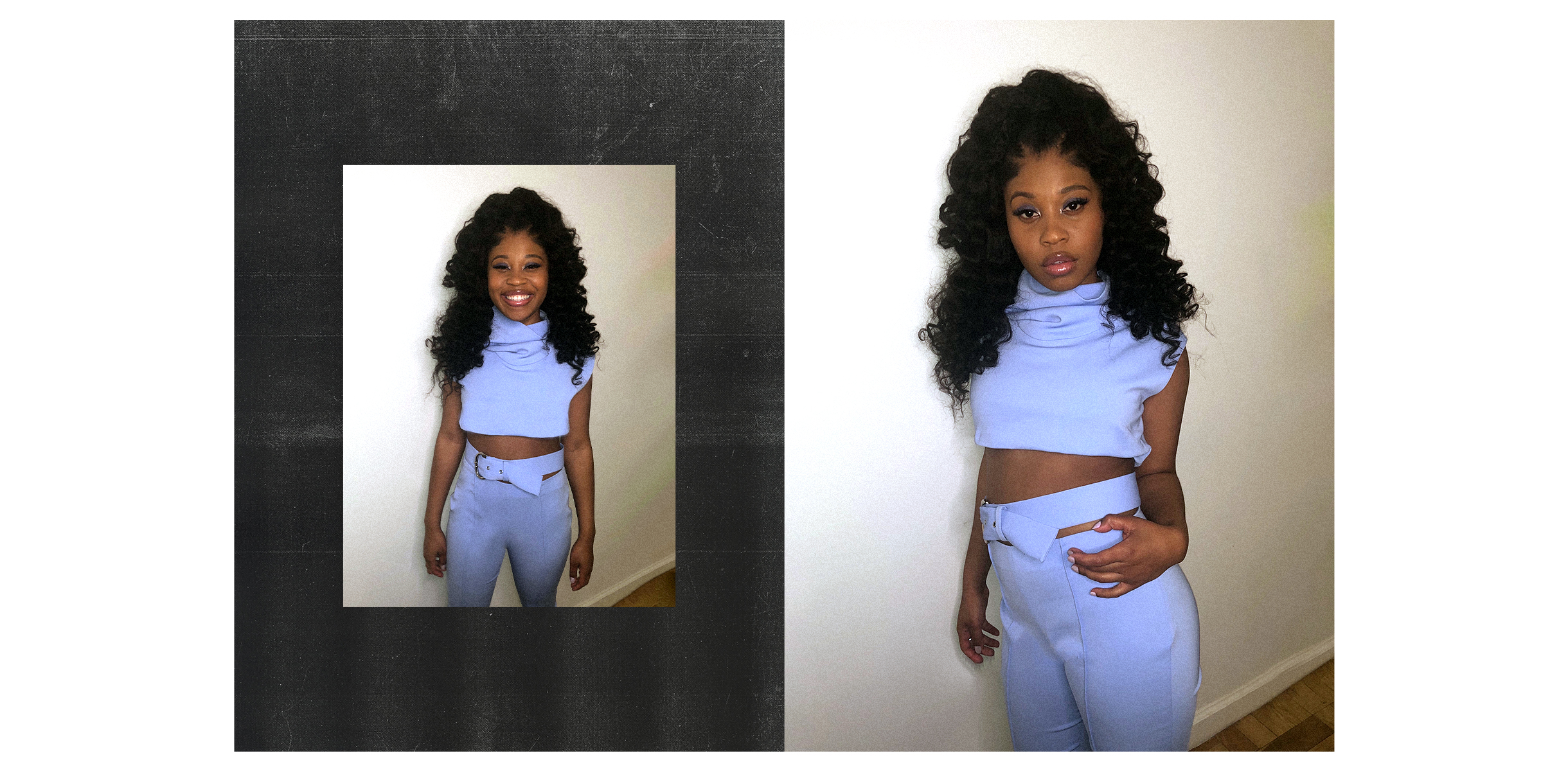
Speaking of your poems, I heard you were heavily involved in the writing of the poem Deborah reads to Fred in the film. How did that come about?
I met with Shaka, and he said he wrote the role for me and that he wanted me to read the script and let him know my thoughts. So I read the script and gave him an email about everything that I loved, and I said, "I have two thoughts, but I don’t want to overstep, so just let me know if you want to hear them.” And he was like, "Oh, you’ll be playing her. You can’t overstep. Give me your notes.” So one of the first things was, "One of the first things [Deborah] says is, Do you like poetry? And then, we never hear a poem, and the Panthers were very poetic. I think we miss an opportunity.” [Shaka] says, "I think you are right. Do you want to take a shot at that poem?” I wasn’t expecting him to say that. I was looking back at my email because I kept talking about this poem, and I didn’t really remember the process of writing it. I know I was on-set of The Deuce when he sent me the email that said, "How is that poem coming?” I was like, "Sheesh, I haven’t written it yet.” And so I just sat in the hair and makeup chair and wrote a whole long poem, just getting all of my thoughts out. Then, I told him, "You know, this part is just the intro. We can cut it. You let me know if you want to take another edit at it,” and he was like, "No.” He just took the heart of what I said and put it in the script.
This film feels particularly timely with last summer’s BLM protests, which resulted in a huge moment of reflection and education for the country. Why do you think it’s important to continue learning about Black history and sharing these stories on a global stage?
Because theater and art and film hold a mirror up to society, right? We could always say, "Well, this was before; this was the past,” but when you look at Breonna Taylor being murdered in her bed and Chairman Fred being murdered in his bed, you can’t say that it was another time. So it is really about holding society responsible for the things it has done. We have to admit we were wrong and the way that we treat people is not okay. And we start admitting that, and we start learning, too. It’s okay if you say, "My parents told me this, and I thought that for a very long time.” I think that’s what was happening last summer. People started to realize, "Hey, maybe how I’ve been walking through the world has been with a different kind of eyeglass on.” I talk in my one-woman show Subverted about dog-whistle politics, which is something that I learned from Olivia Pope in Scandal. It’s the idea that certain things would be said on TV and on the news and I would be like, "That’s offensive to me, and that’s offensive to people who come from my neighborhood,” and other people who are not from my neighborhood would be like, "What? What is?” But that’s because they use different words, like "animal” talking about a Black man who they are accusing of something. Animal. Nobody else is hearing that. Whatever you want to use, it’s dog whistling, and it’s offensive. But if you don’t come from that reality and you’re not put up against a wall every time you walk to the store or thrown on the floor or called "boy” even today in East New York Brooklyn, then you don’t know that reality. And it’s okay that you don’t know it because how are you going to know what you don’t know. But when somebody is telling you their truth and their story, instead of saying, "No, that’s not true,” listen. And maybe we’ll start listening. I remember seeing a video of a young white boy who got his eyes shot out by the cops with a BB gun protesting for Black lives, and I looked on Instagram and thought he was going to be mad that he went and put his life on the line for something that did not affect him, and he said losing his eyes is a small thing compared to what Black and Brown people go through in this country. I couldn’t believe it. I was like, "Wow, thank you.” So people are opening up. People are saying, "Your pain is my pain.” We are learning we are one. I remember when the summer was taking off I marched, but I didn’t feel like that was my calling, and I was upset with writing because I wrote Subverted in 2012/2013, and I was like, "Am I just acting? What am I doing? Am I just an artist?” I remember talking to Daniel [Kaluuya] about it, and he said something along the lines of if we are all connected and we are all one and we all come from the same body, then we don’t expect the heart to do what the legs do. We don’t expect the mind to do what the hands do. We all have a different part to play, but we all work as one type of thing, and art matters. And it was like alright, it’s not for naught that I’m writing these poems or I’m writing this one-woman show because we are essentially going to be the ones writing history, the artists. We have learned now that our history books are not even accurate. So if you have a person coming from a neighborhood and they are writing a poem about what it’s like to be terrorized by the police, that’s history that they are marking down. That's a fact. That’s truth. Why should we believe a textbook when we know that they’ve lied to cover up certain things. So yeah, people are going to stop looking at the textbooks for the truth. They are going to start looking at the people for the truth.
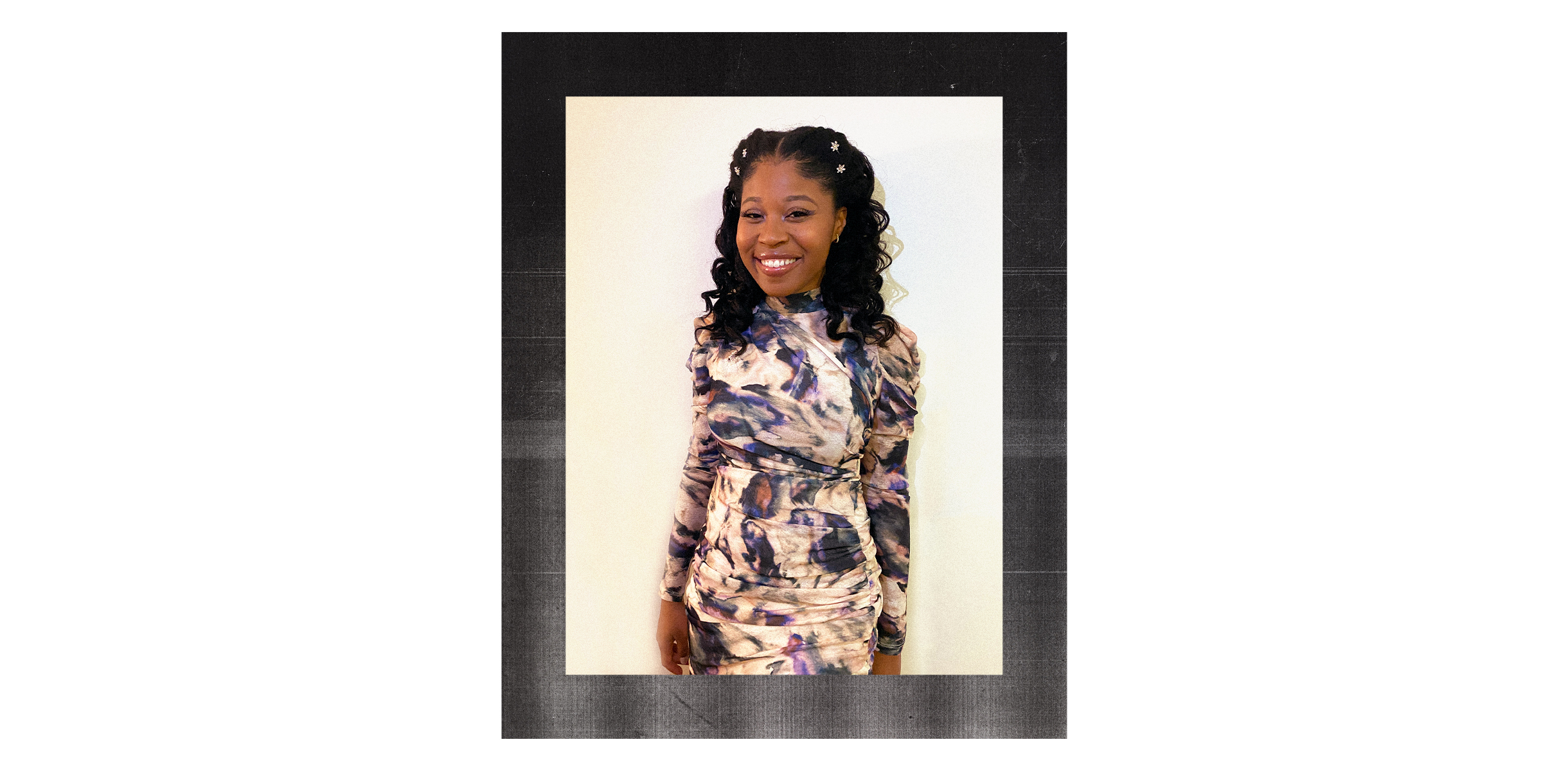
The subject matter of this film is quite heavy. Can you tell me about a particularly joyful day on-set?
To be honest, every day on-set was joyful. The assassination scene happened to fall on the 50th anniversary of the assassination of Chairman Fred, so that wasn’t joyous. That was heavy. It was somber. We were all trying to figure out what we were filming and how to navigate that energy that was floating around. But we went bowling together. We went roller-skating. Our costume designer Charlese Antoinette Jones had a birthday party, so we were able to do that and share time together. We went to the Cleveland Boys and Girls Club, and I did spoken word for them, and we played basketball and football and air hockey and all of these things with the kids. We went to the Cleveland School of the Arts, and they performed monologues for us, and we gave them feedback. That wasn’t something we had to do. It was something that we wanted to do.
You recently shared a tweet from 10 years ago where you said you want to make theater that changes lives and be a part of shows that are profound to people and beautiful messages. Now that you are doing that, with your 30th birthday coming up next month, what are your hopes and dreams now?
Well, I definitely want the EGOT. I want a Pulitizer for Subverted. That is something when I was writing Subverted. I was like, "I want a Pulitzer.” I wrote it on my Instagram. I have a lot of vision boards, and I realize a lot of my vision boards cover just my career, so finally, I was like, "Dom, what about your personal life?” I want to be married. I want to have kids. I want to have a big house with a pool and a basketball court. I want to have a big house where my family can come, and we can have a good time and share space and memories. There are so many things, especially with art. I used to say I want to do one of each thing. I want to write one one-woman show. I want to write one poetry book. I want to do one album. I want to do one paint gallery exhibit. One documentary. One of everything. And that doesn’t mean I wouldn’t make another one-woman show, but I just really want to try and do one of everything and, to the very best of my ability, to try and tap into all of those mediums. That would be fun. Manifestation is also leaving room for God and the universe to work their magic. I was manifesting a romantic lead, and I would have never thought I would play Chairman Fred’s fiancée to Daniel Kaluuya’s Chairman Fred. I would have never thought that, so I know that the universe has big plans.
Who are the creators (filmmakers, writers, actors, artists) on your radar right now that you would love to work with next?
If I could do something with Lin-Manuel Miranda, that would be really cool. I think that would be dope. My homeboy, he is from Brooklyn, Anthony Ramos. I did a short adaptation of Romeo and Juliet [with him], where everything is spoken word, and we did it for a gala for a theater company. So that was really cool, and now, I know he is doing In the Heights. So if I work with Lin and Anthony, that would be cool. Who else? Meryl Streep. I want to do a movie with Meryl Streep so bad. I don’t know what we could do together, but I know it’s going to be amazing.
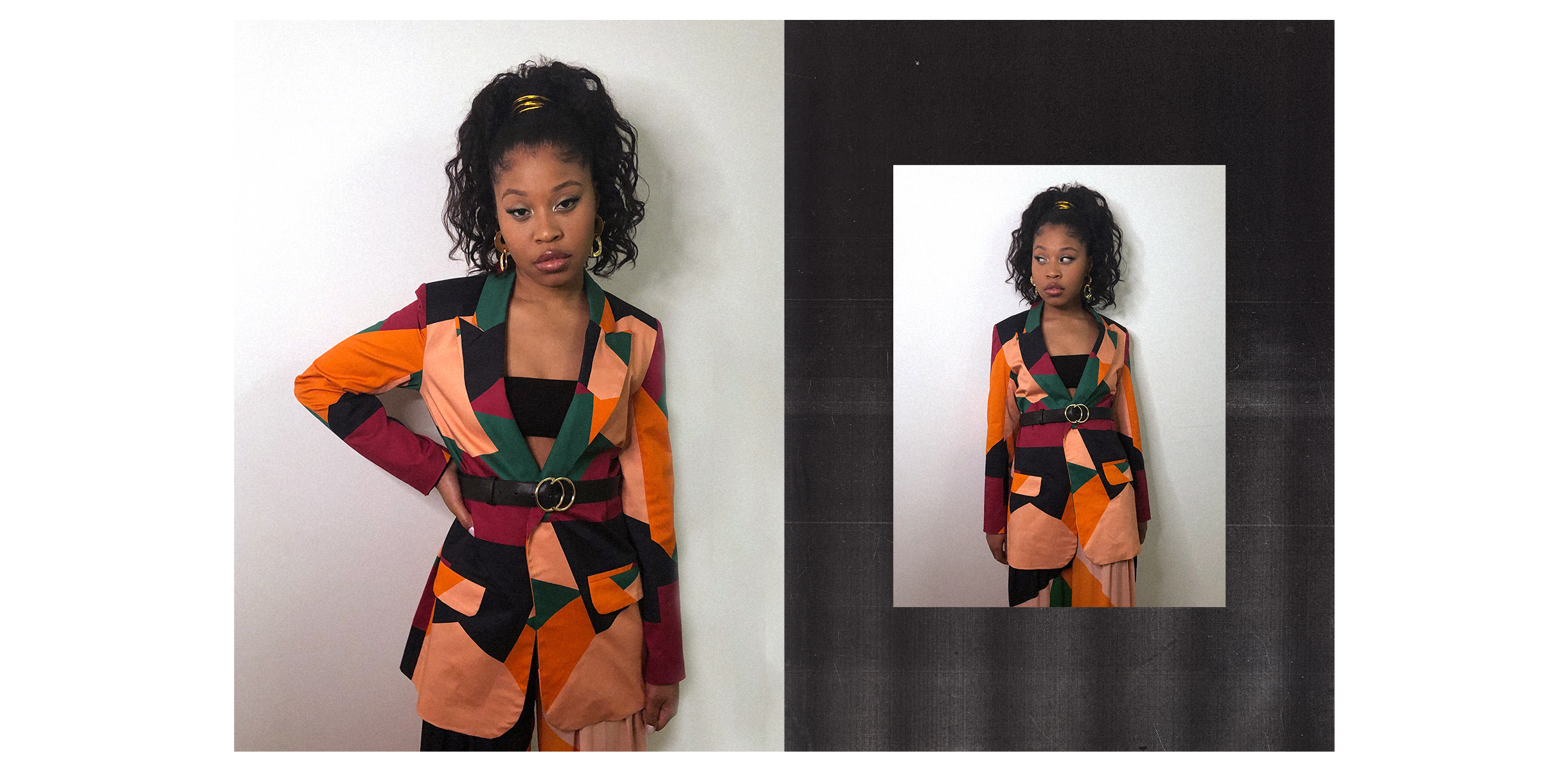
I’ve been following your virtual press looks on Instagram, and it’s pretty clear you are having a lot of fun. You are wearing a retro Miu Miu plaid number one day and the very next day an incredible Tom Ford red, leopard-print suit. And then on the beauty side, you have been playing with pearls, blue lips, and crystal eye makeup.
Well, I have to say Madison Guest, who is my stylist, is truly amazing. She is also similar to Shaka in a way. She is such an amazing collaborator. I do PDFs, okay. In 2018, I made a PDF and sent it to Madison and said, "What would it look like if Brooklyn had princesses? What would it look like if Tupac and Selena had a baby?” I really did go wild and crazy. Sunshine is something people say when I come into meetings—like, "Oh you bring the sun with your smile.” So how can we bring the heroine with 1000 faces to the forefront because I really feel like I have so many different parts of me inside. We have one life to live that we remember as these versions of ourselves, so I want to be able to really tap in and share these versions of myself with whoever cares to watch, but really with myself. I give every year a word. So in 2019, it was my spirit year. In 2018, it was my CEO year. Twenty-twenty was my freedom or freeDOM year. And so 2021 happens to be my divine feminine year. I would post little stuff like that on my Instagram, and all of a sudden, Madison comes with her own PDF, and she is like, "So divine feminine!” She is just having a good time. She gets me, and she’s not offended by anything. Monae Everett is my hairstylist, and Billie Gene is my makeup artist. There are a lot of fires [in the group]. Madison is a Saggitarius, Billie is a Leo, I’m an Aries, and Monae is a Libra, and Libra is the polarity of Aries, so there’s some balance. We’re really vibing out and having a fiery fun time. Madison always tells this story: When I first got with her in 2017, or something like that, I said, "So I like what you are doing here. I like that, but I don’t want to be boring. I want to have a great time.”
What about your personal style? Are there certain pieces you find yourself gravitating to at this moment?
I do these Zara [pants]. They are kind of boyfriend pants, baggy but high waisted. Very ‘90s. For T-shirts, I have one that has Romeo and Juliet kissing on it, Baz Luhrmann’s Romeo and Juliet. I have a Dirty Dancing T-shirt. I have a Sixteen Candles T-shirt and an Aaliyah T-shirt. Romance merch. I need to get The Notebook. But yeah, a T-shirt and those baggy pants or some sweatpants because, Who is really going anywhere? That’s kind of my thing, a baggy bottom and a tight top or a crop top.
Judas and the Black Messiah is now streaming on HBO Max.
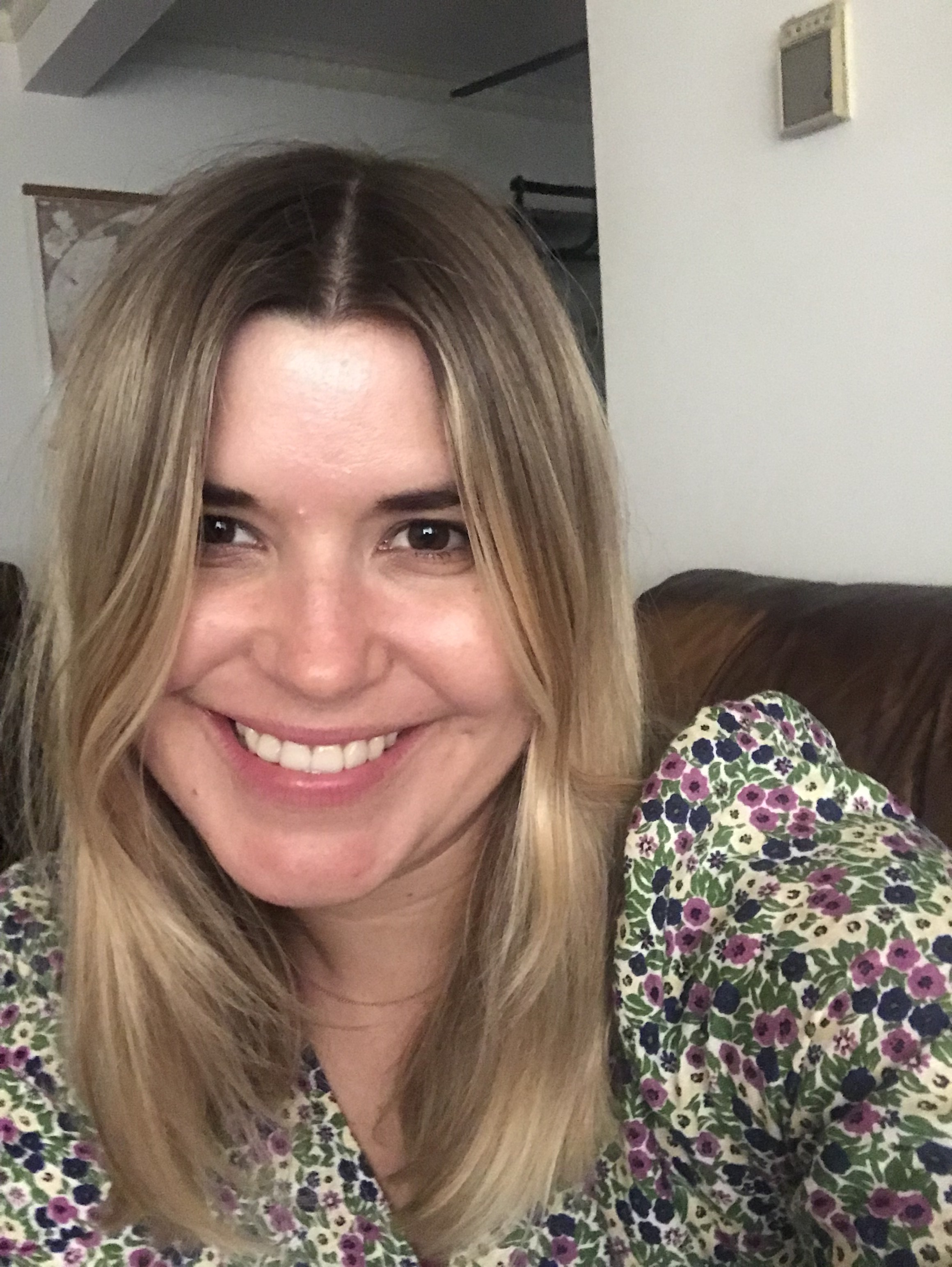
Jessica Baker has 16 years of experience in the digital editorial fashion and entertainment space. She is currently the Executive Director, Entertainment at Who What Wear where she ideates, books, writes, and edits celebrity and entertainment features.